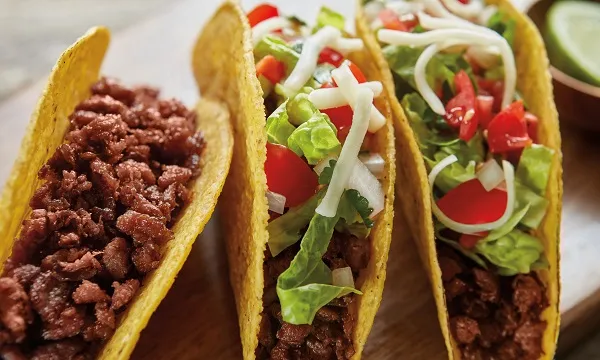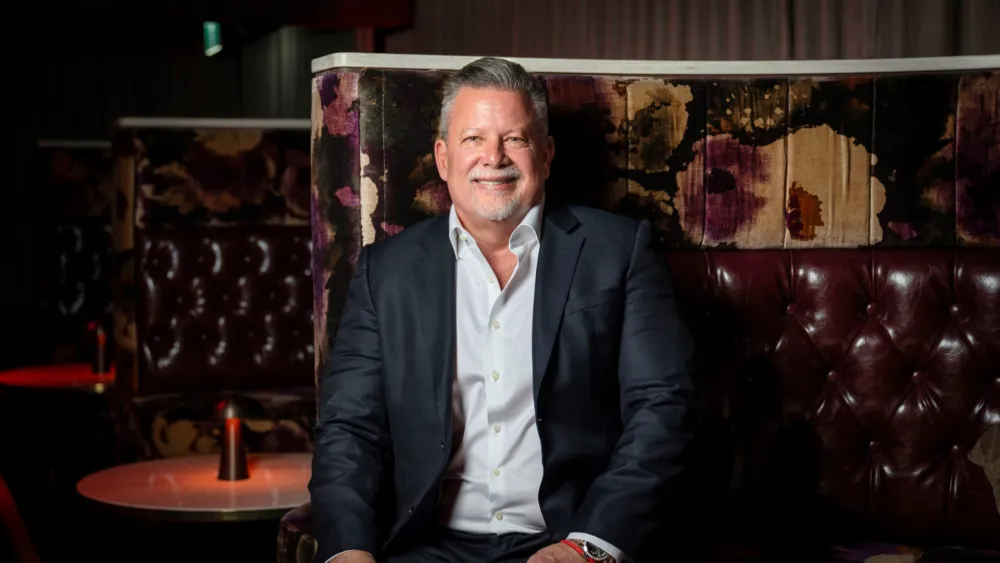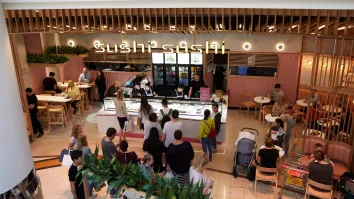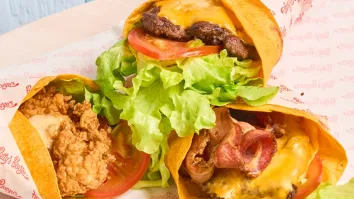
Hungry Jack's, Ribs & Burgers, Lord of the Fries, Butcher and the Farmer reveal how they keep up with flexitarianism
Industry experts explain why the trend resonates with consumers.
The consumer market for plant-based proteins is growing at such a rate that traditional fast food chains have taken shots in providing alternatives to the usual fare.
Whilst no stranger to alternatives to beef or pork, Aussies are seeing further mainstreaming of faux-meat items, courtesy of Hungry Jack’s Rebel Whopper.
The product, they say, was made for a growing set of customers: flexitarians and meat reducers - persons who do not necessarily identify as vegetarian or vegan but welcome a plant-based option in their diets.
“Flame grilling is what sets the Whopper apart and the ability to flame grill a patty made from plants was a major challenge for the innovation team. But it was an opportunity that has now delivered a great tasting burger and we challenge people to tell the difference,” Hungry Jack’s chief executive Chris Green said at the time.
Hungry Jack’s teamed up with CSIRO and new plant-based meat start-up v2food, which recently secured $35m in a Series A funding round, for the development of the Rebel Whopper. v2Food also confirmed that they have partnered with Sydney-based burger chain Soul Burger.
"In doing so, we've identified the amino-acids and peptides that are responsible for that awesome meaty taste. Together with CSIRO, we’ve developed patented technology and IP around the protein structures that make v2food look, cook, and taste like meat.," v2Food CEO Nick Hazell said.
"The reality is that there’s a big consumer pool for this. People are worried about climate change, they’re worried about what they can do as consumers to help the planet, and reducing your meat consumption is becoming an increasingly popular consumer choice. v2food and other plant-based companies will play a pivotal role in changing the way we feed the growing global population sustainably. It’s not a zero-sum game."
Both meat- and vegetable-centric chains tell QSR Media that the industry continues to recognise the growing trend towards flexitarianism.
Since launching the Beyond Burger and Beyond Sausage within the last 24 months, Lord of the Fries has been noticing an influx of non-vegan customers coming through their doors.
“We’re beginning to find that we dish up more food to flexitarians or meat-eaters who are either keen to reduce their meat intake or put the vegan alternative to the test to realise for themselves that vegan food doesn’t need to skimp on taste,” Lord of the Fries co-founder and CEO Mark Koronczyk revealed.
Seagrass Boutique Hospitality Group-owned Ribs & Burgers also partnered with U.S.-based food company Beyond Meat earlier this year to launch its own range of plant-based burgers.
“Launching a plant-based product was uncharted territory for us...we acknowledged the changing dietary landscape which was reflected in conversations with our loyal customers who loved our burgers and ribs but, due to health reasons, needed other alternatives to meat,” Ribs & Burgers food manager Etienne Lubbe explained.
“Flexitarianism is a more accessible form [of] full vegetarianism. Because of this fact, people will naturally gravitate towards it as it is perceived as an easier way to being healthy and doing the right thing by the planet.”
Its sister chain, Butcher and the Farmer - which is transitioning to a QSR format - reckons that flexitarianism is the “most balanced way of living” when it comes to food consumption.
“[Being] flexitarian is a very natural way of eating. Meat should be seen as a luxury and therefore, it shouldn’t feature on every plate. Most vegetables are the healthy choice so that’s a reason why they should feature on every plate,” brand manager Steve Flood surmised.
Migration towards plant-based behaviour
Adrian Gastevski, director at Future Farm Co, a specialised plant-based meat and grocery business supplying Beyond Meat in Australia, notes that over 40% of Australians are seeking to actively reduce meat in their diets.
“Despite what term we may use and how a consumer may describe themselves, this is the segment where the major growth is coming from; consumers that are choosing to eat less meat,” he notes. “More and more Australian consumers are showing a migration towards plant-based behaviour as we are seeing in international markets. They may identify as flex, omni, or meat-reducing but they are all walking the same path, just at different speeds.”
Gastevski notes that in many ways, QSRs are demonstrating leadership in terms of understanding this segment of the market.
“QSRs have access to a huge pool of data demonstrating that the ‘flex’ customer trend is growing fast and quickly increasing its relevance to decision making for consumers choosing to fulfil their dietary preferences. We are seeing nearly all QSR concepts experiment with meat replacement products that ultimately appeal to their main audience, meat eaters.”
Changing public perception
Flexitarianism is also gaining ground as consumers become more aware of the environmental impacts of animal-based agriculture and the health benefits of a plant-based diet. Dietitian and nutritionist Rachel Scoular notes that roughly 12% of the population now consume a diet which is all, or mostly all vegetarian.
The opportunity for QSRs here, Scoular says, is to not only make a product which is fitting to the vegan/vego brief, but make vegan and vegetarian products that appeals to their entire target market, regardless of dietary preferences.
“We’re now spoilt for choice when it comes to plant based alternatives; pulled jack-fruit makes an excellent alternative to slow cooked pork and creamed cashews can be used in replacement of cheese and dairy. Vegan products and meat substitutes have had a bad rap in the past, however public perceptions are slowly changing. Advancements in technology have gotten us to a point where these substitutes now closely match the taste and texture, making it easier for consumers to adopt a flexitarian approach,” she adds.
According to Scoular, any QSR that intends to capitalise on flexitarianism should understand that a change of mindset for the marketing and new product development teams is essential. She suggests that the key is to ‘add’ ingredients and not ‘subtract’.
“Only a few years ago, vegan or vegetarian customers would still be left with little choice and often have to forego key ingredients to ensure the meal remained suitable. Make these vegetarian dishes the hero, invest in quality,” she explained.
“Look to take risks with new ingredients that aren’t widely known, there’s potential to be a leader in this space and cater to the customer’s curiosity. Also, think if the underlying principles of a plant-based diet really resonate with your company’s values, think about a larger, integrated campaign for consumers passionate about social responsibility and environmentalism.”
A costly alternative
Even though this diet is becoming increasingly popular, Scoular believes it will not become the majority trend. “Whilst meat alternatives and substitutes are supposedly more environmentally friendly, they aren’t much ‘healthier’ and are quite kilojoule dense. These alternatives are also more costly, so it will be interesting to see if society is prepared to pay the premium over the long term,” she said.
Regardless, Scoular notes that this flexitarian trend falls part of the overall market shift towards increased care for personal wellness and awareness of environmental and social responsibility. “This trend has been steadily increasing over the past few years and I think we’ll continue to see it do so. The key thing to remember, is that the flexitarian movement is just that, flexible. We’ll see more consumers requesting a vegan burger for lunch, but they might still pop next door for a dairy-based ice-cream after,” she adds.
Costs notwithstanding, Lord of the Fries, Ribs & Burgers and Butcher and the Farmer agree that the move towards flexitarianism is one that cannot be ignored by those who want to keep up.
“It’s fair to say that everyone is now jumping on the vegan bandwagon and not necessarily tied to a huge shift in societal beliefs, but simply down to greater awareness and exposure due to the internet and streaming services that are airing documentaries that give viewers the ‘shock’ factor,” Koronczyk said.
“The QSR industry as a whole is having to ensure its meeting the conscious consumers’ demands for more ethical options and are having to react to this at a fast rate,” he added.
“I will continue to cater for all diets with menus going forward,” Flood said.
“There is just too much evidence that we are confronted with daily that [the plant-based market] can no longer be ignored,” Lubbe added. “Regardless of your personal beliefs, this is a trend that will become more and more mainstream. As such, businesses that aren't already in playing or at least planning in this space have to start doing so or run the risk of being considered irrelevant in the very near future.”
Roxanne Uy contributed to this report.























